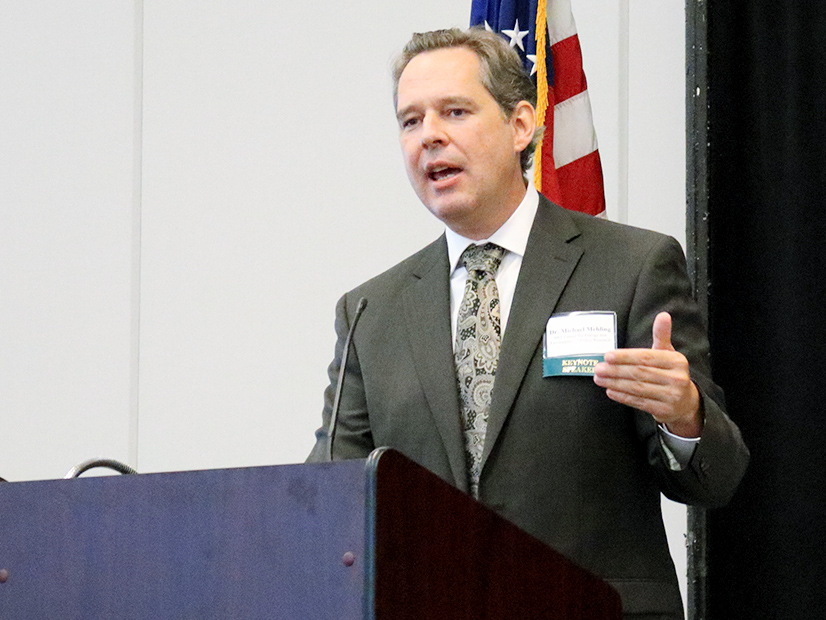
SARATOGA SPRINGS, N.Y. — Europe appears to be retreating from electric competition and single-price clearing auctions, trends that could spread to the U.S., MIT professor Michael Mehling told the Independent Power Producers of New York’s (IPPNY) Fall Conference on Wednesday.
Mehling, deputy director of the MIT Center for Energy and Environmental Policy Research, spoke after the annual European State of the Union, where European Commission President Ursula von der Leyen proposed capping prices for renewable and nuclear generators at $180/MWh and imposing windfall profit taxes on oil, gas and coal companies. Von der Leyen also called for “a deep and comprehensive reform” of the merit-order electricity market, saying the EU needs to “decouple the dominant influence of gas” on prices.
Von der Leyen’s proposals came in response to rapidly rising prices resulting from drought, reduced offshore wind production, the phaseout of nuclear units and, most recently, Russian gas supply cuts.
Energy Security
The EU’s energy security has also been impacted by its aggressive climate targets, which prompted a shift from dispatchable coal and gas resources to renewables, Mehling said.
The European Parliament recently backed a target to get 45% of its energy from renewable sources by 2030, compared with 22% in 2020. Additionally, the EU adopted laws requiring at least 55% GHG emission reductions by 2030 compared to 1990 levels and net-zero emissions by 2050. It also created energy efficiency directives that require the continent to achieve a 20% reduction in energy consumption by 2020.
“Energy security is definitely — there’s no argument about it — compromised in the EU now,” Mehling said.
European leaders have increasingly considered market interventions. As of October 2021, 25 member states had adopted price regulations or transfer mechanisms such as income supports and tax reductions to address rising prices. The French government recently bought the remaining shares of the nation’s main utility, Electricite de France. Germany’s government has started talking about reopening many of its retired nuclear plants, Mehling said, while Poland “has gone back to coal.”
Lessons for the US
Mehling said one lesson from Europe’s experience is “how quickly you can go from believing firmly in … deregulated markets to seeing a tremendous appetite to intervene at every level, both in the name of climate policy, but also in the name of reducing energy costs.”
“Is that something that could also happen here?” he asked. “Some would say it’s already beginning with, you know, all kinds of different policy complements to the traditional … liberalized parts of U.S. electricity markets.”
In 2021, before its invasion of Ukraine, Russia supplied almost half of Europe’s gas and coal imports and a quarter of its oil. Russia is now responsible for less than 10% of Europe’s gas imports. As the EU weans itself from Russian gas and builds more LNG terminals, demand for U.S. gas will increase significantly, creating a “convergence of prices around the globe,” Mehling said.
Mehling said EU leaders risk making mistakes in attempting to respond to the crisis with quick, decisive actions, such as the proposal to decouple natural gas from setting market prices.
But he said economists and policymakers must determine whether single-price clearing markets still make sense as the fuel mix shifts to one dominated by low variable cost renewables that often produce negative prices.
“For 20 or 30 years, we thought we knew what the optimal [market] design would be,” he said. “But with changing circumstances … I think we also have to be sober enough to realize that at some point, this dearly held principle of what the optimal approach would be may have to be revisited.”


